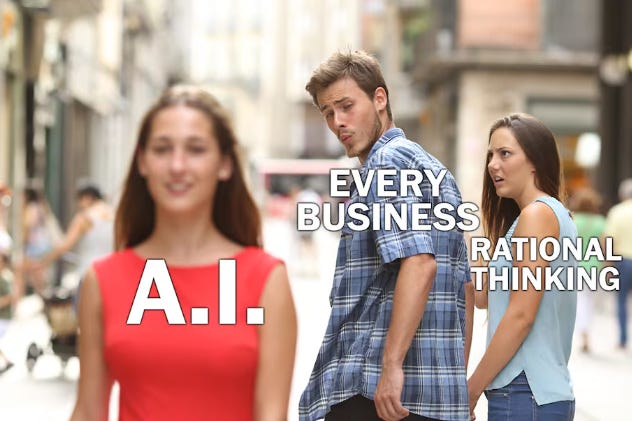Every time there is a promising new technology, rational thought goes out the window and businesses absolutely positively have to include this technology in their products whether that makes any sense or not.
My prime example is blockchain technology. Blockchain technology is a great invention with many important use cases that will improve many things. Just think of international trade where smart contracts can track deliveries and fulfillment, including payment, without the need for a trusted party even in highly corrupt countries. But one thing blockchain technology is not useful for is money. People try to convince us that blockchain money like Bitcoin will replace our current forms of money because it is anonymous, safe, and a story of value.
Ok, what’s wrong with cash?
I bet, if we had used Bitcoin for centuries and someone invented coins and paper bills as a mode of payment, we would probably all abandon Bitcoin in favour of cash. Because not only is it anonymous, but it is also a store of value that can be moved across borders and held for a long time without any major problems and definitely much smaller fluctuations in value than Bitcoin.
On top of that it is easy to use in daily transactions. Buying stuff and paying with cash works anywhere and is fast. Paying with cryptocurrencies only works when you have an internet connection and an electronic device. Plus, it is incredibly time consuming to verify the transaction. Cash is so much more convenient than Bitcoin and other cryptocurrencies that I consider cash a leap forward from cryptocurrencies, not the other way around.
And now, cue the crypto maximalists who will send me a ton of emails about how cash is not a story of value because of inflation and exposes us to the will of governments and elitist central bankers, etc. etc. etc.
But cryptocurrencies and blockchain are not my point. My point is that we are in the middle of another hype and – dare I say it – bubble.
AI is a revolutionary technology that will change many things including our workplaces and many products. But that does not mean that every product needs to have AI. Yet, many businesses try to convince us that whatever mundane task we have been doing for decades and centuries now needs to be AI-enabled.
Want a few examples?
Oral B has recently launched a $400 electric toothbrush with AI: “The ‘3D Teeth Tracking’ technology monitors your brushing and guides you toward the optimal clean. It provides personalised live coaching” - no, not life coaching but I am sure that will come at some point - “and gives you a smile for a job well done.” Exactly what I need, a judgemental toothbrush.
Self-driving cars don’t work but self-driving prams are about to be released into the world. The Glüxkind Ella stroller uses AI to drive itself around or even rocks the baby to sleep while mommy and daddy have their hands free to do other, presumably more important, things. The video on their webpage shows a stroller driving itself along the boardwalk toward a busy street while the mom is walking behind holding the baby. I mean what could possibly go wrong?
Or how about a pillow linked to an app that uses sensors and AI to wake you up when you start snoring? It’s yours for $1,000. Good night, and good luck.
Or, finally, why not sign up for the Capella parenting app for just $10 a month? Using AI, the app tracks your baby’s sleep and provides you with personalised insights into its habits. Just the right thing to get your baby used to the age of surveillance capitalism. And now the AI is even better. The ads claim that it can translate the baby’s crying into English, telling parents exactly what it is that the baby needs. I wonder how humanity has survived to this day without this helpful translation service for parents…
These gadgets trigger in me the same reaction as a crying baby (with or without the English translation): Please make it stop.





Joachim I think you need to refer to yourself as British from now on. You have lived here long enough to develop a strong core of British scepticism 😁
The Capella parenting app....
"Brother, Can You Spare Two Dimes?" is the twenty-fourth and final episode of the third season of the American animated television series The Simpsons.
In the episode, Homer is awarded US$2,000 in compensation after radiation from the Springfield Nuclear Power Plant causes him to become sterile. Homer's half-brother, Herb, now poor and homeless, hatches a plan to regain his wealth. Homer loans him $2,000 to develop a new product that translates baby babbling into speech that parents can understand. Herb's invention is hugely successful, allowing him to regain his fortune.